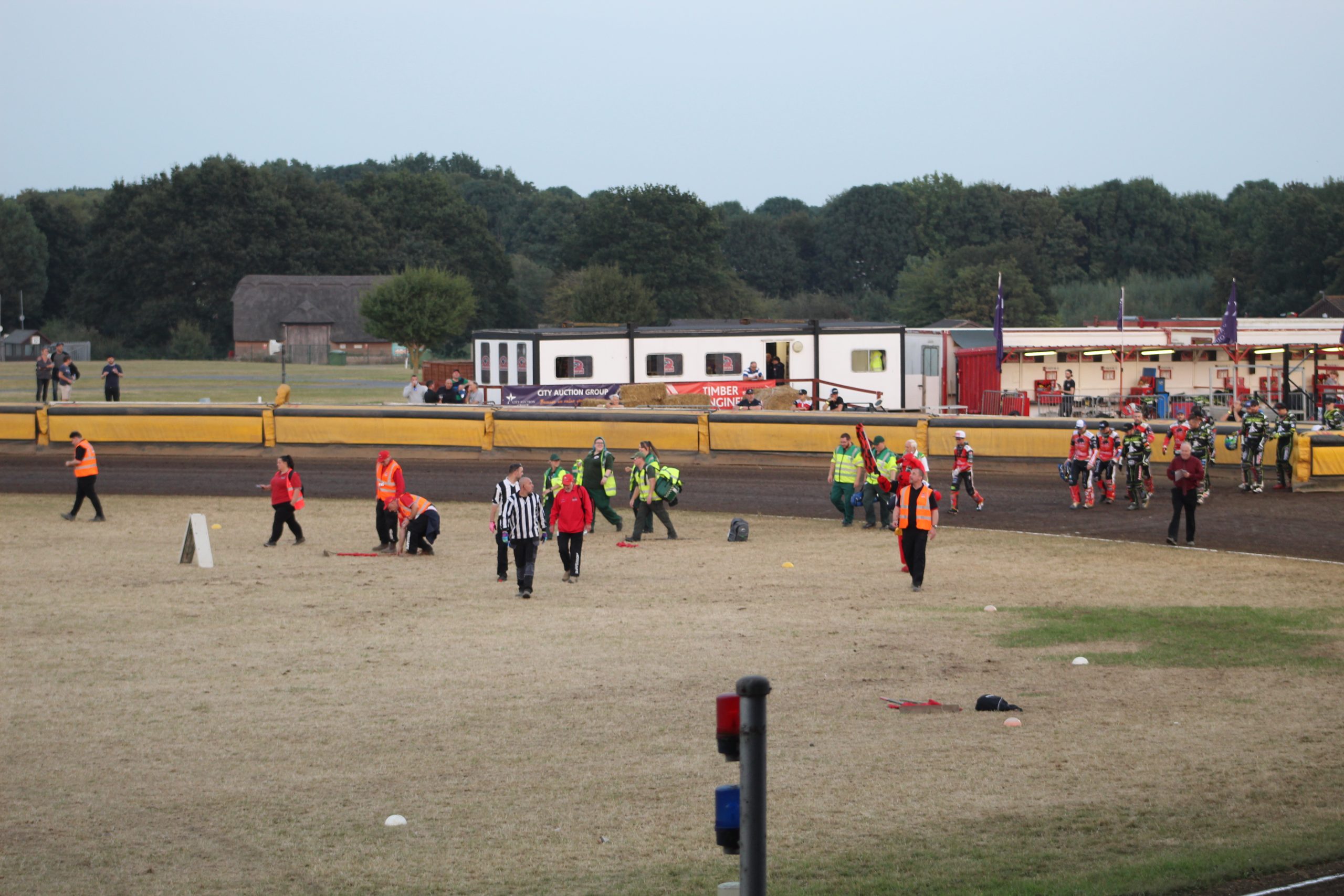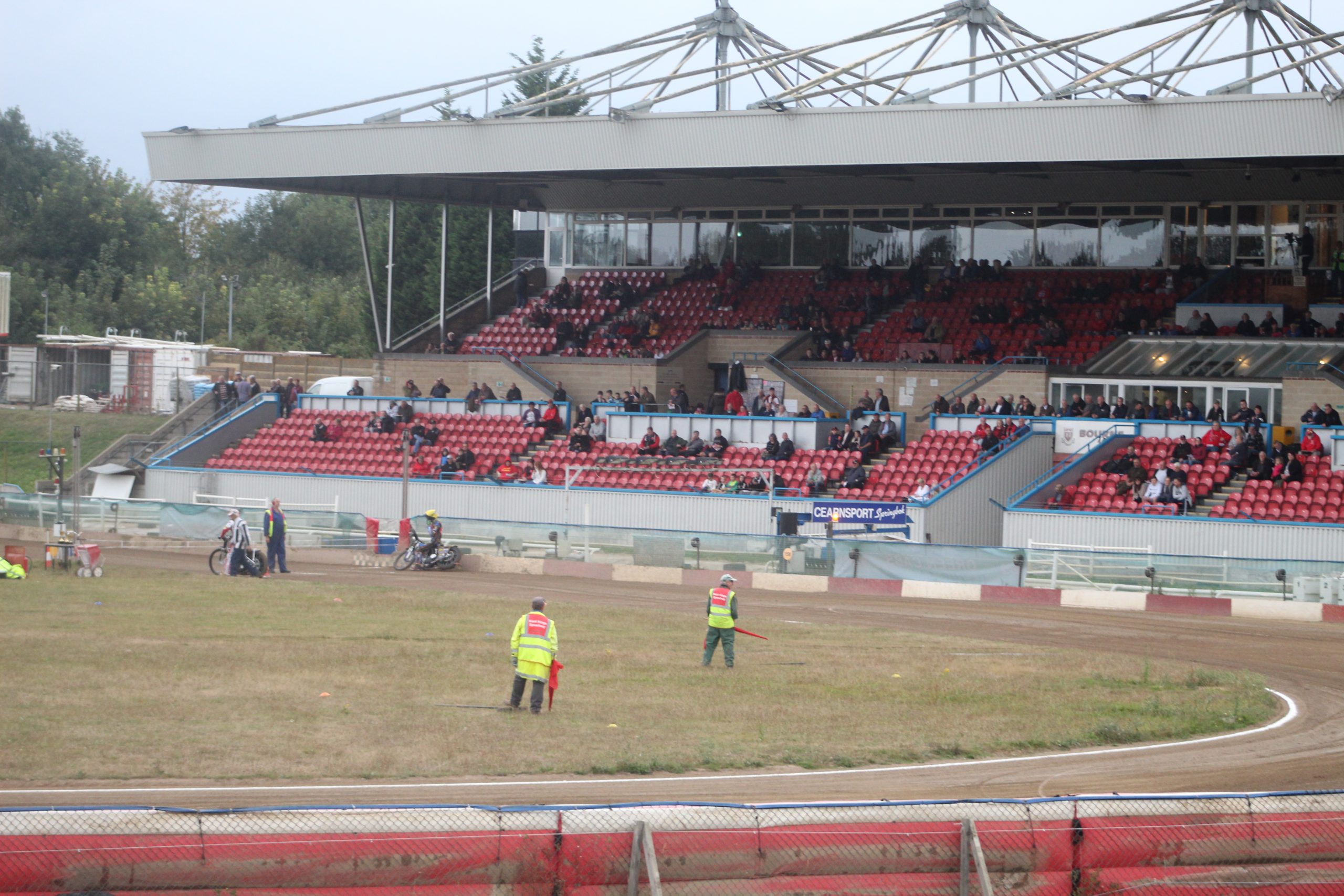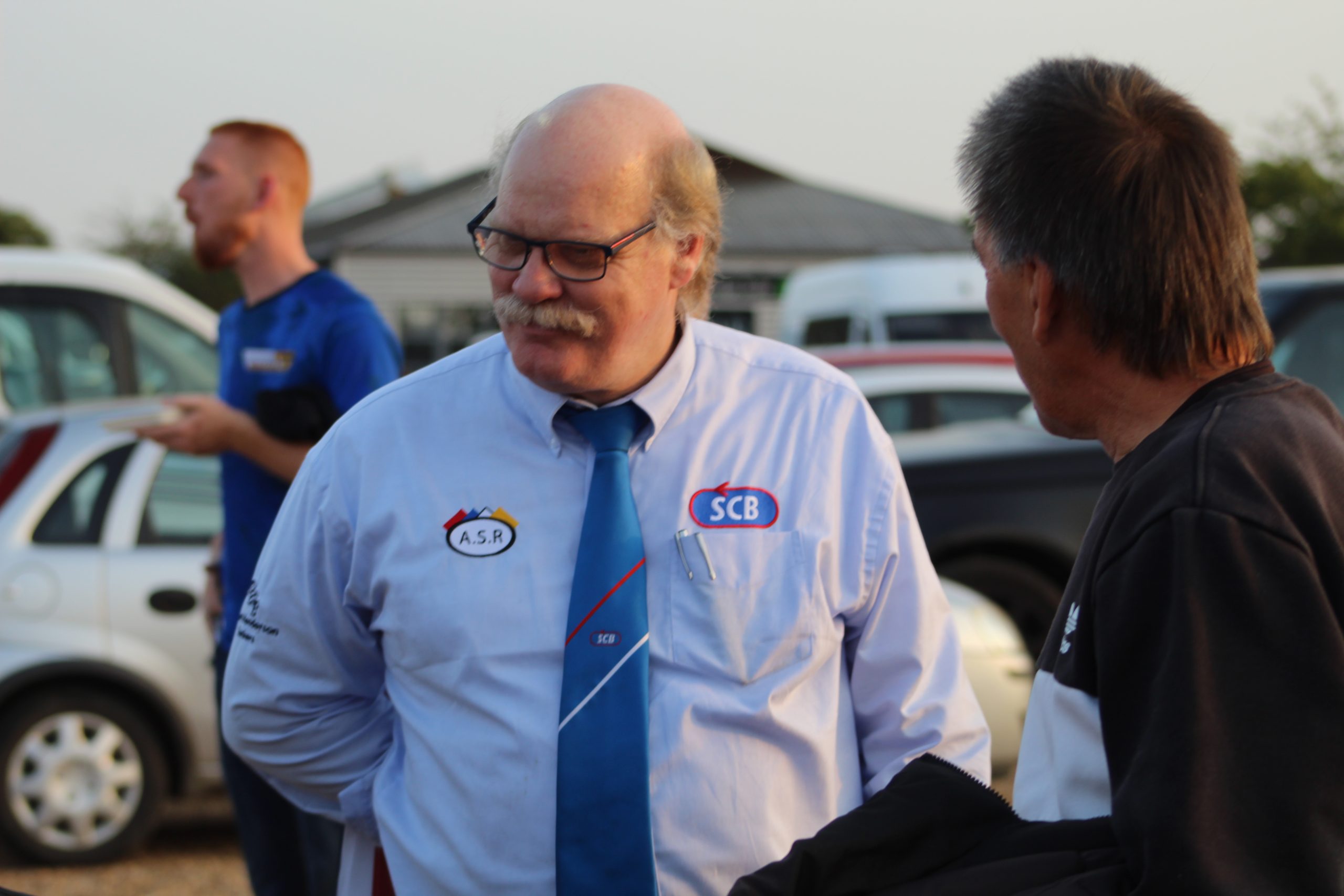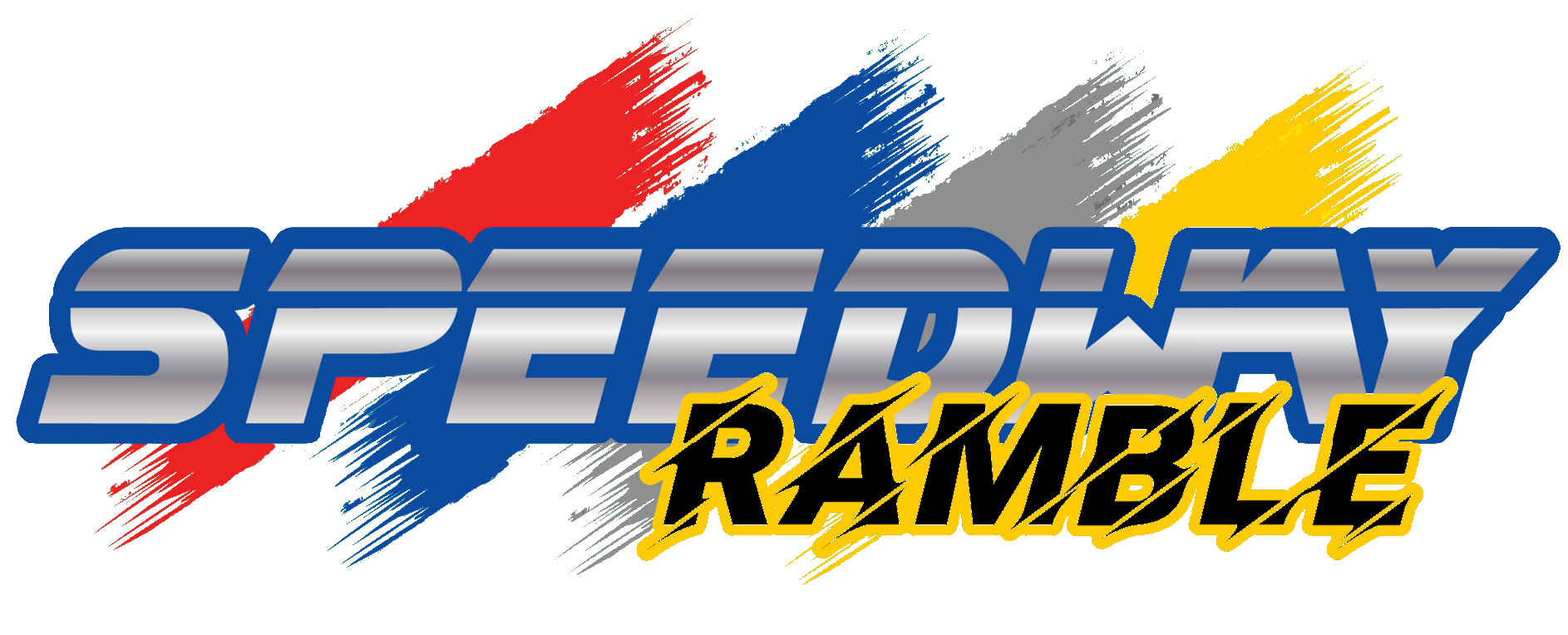Current Issues Part 1
Covering Speedway Exposure to the Public, Professional Image & Presentation, Demographic and Audience Age, Staying Power & Overcomplicating the Rules.
Speedway's Exposure to the Public
There was a time when life was narrower; I mean that the extent of the world we lived in was far smaller. We didn't have the ability to get news from all corners of the globe in minutes every day. TV had just three channels in its early days and sport was on Saturday. You had the likes of Grandstand, Match of the Day and World of Sport to whet your appetite. You got your news from TV and the newspapers, and people check if a speedway match was still on using Teletext.
Speedway was covered in the papers and had a regular spot in the world of sport. Television started to develop with 24-hour broadcasting and additional channels. Speedway occupied the subconscious of millions and could reach beyond the borders of its fanbase.
In 2021, Speedway lurks in the shadows. It's there, but you need to know it's there when you look; otherwise, you could quite easily miss it. I'm sure you've all heard the phrase out of sight, out of mind. Speedway doesn't occupy the Mindspace of the general public; people aren't talking about it, newspapers don't cover it, sport news channels no longer broadcast results or tables. In 2018 the world championship was secured for the third time by a Brit, the first time in history, but the headlines eluded the new 3-time world champion.
The truth is, most people in the UK don't even know Speedway existed, and if they did, it's a distant memory of the 1970's and 1980's when Speedway occupied a prime-time slot on World of Sport and would feature in newspapers. The leading British broadcaster paid for by public funding doesn't even consider Speedway noteworthy as a sport.
National exposure comes at a premium for any non-mainstream sport. There is the odd occasion we get positive exposure, like when Tai Woffinden guested on BBC Morning, but when it comes to league racing, it's the negative stuff that makes the news. There's no longer a Mauger or Penhall embracing the opportunities available in the British market, nobody embracing the evolving demands of the economy and adjusting the sport to suit.
Our marketplace is small; Speedway is a niche within the motorsports niche, even motorcyclists don't come to watch in large numbers. Crowds are dropping, and we don't appear to know what to do about it. In November 2018, Speedway Star published an entire issue revolving around the future of the sport, sending a clear message changes were needed to restore the sport to former glories and perhaps beyond. Every winter, the AGM passes by, but nothing substantial appears to change.

Professional Image & Presentation
You often hear people say Speedway needs to become a non-professional sport in the UK, it's absurd when you think about it, but you can understand why people believe this at first glance.
The professional image isn't there. During pre-match parades, the track staff wander onto the centre green like stragglers at a concert. Across the board, presentation is vastly overlooked. The demands of different demographics are not being met at each speedway experience. We have mascots at some tracks, not others. We have charismatic centre green announcers at some tracks but not others. You can have two vastly different experiences of Speedway depending on where you go, not just because of the facilities available. When you enter some stadiums, it's like you've gone through a time warp, they are playing music from the 1980s on tiny speakers from the garage, and the décor is suited to the music's era.
Speedway now must compete with vast home comforts, television and streaming services, video games and the internet. Tempting people out much harder than it once was, we have new challenges to address like persistent night closures on the roads and people seeking more value for their money. Is it possible for today's youth to get as excited about a speedway race in the way we did in our youth, especially when you consider the technology available today?
This issue is further compounded by Speedway's lack of presence in the digital market, streaming services have been introduced in some places, but overall it's not enough. British Speedway has started putting out random race clips which, is certainly a start, but it doesn't air professionally enough.
We could do with 3 to 4-minute highlight packages after every league match, some clips from a few races with narration over the top, followed by one interview from each side. This is the basic foundation for the sport. We can extend to more exciting stories about specific events such as any controversies between riders or teams managers etc.
British Speedway is improving its digital footprint. Regular match previous and weekly round-ups can be found on the official website and regular social media posts with pictures from matches, but more work is needed. During the press's matchday experience, far too many times, I've seen well-connected professional media turn up to Speedway like it's a third-world country. The bare minimum any media outlet requires is to connect their laptop and somewhere to write, preferably with access to hot drinks.
You'll often hear the complaint that Speedway doesn't get news exposure, but the sport itself doesn't do enough to encourage the professional image it needs.

Lack of Staying Power
Speedway is rarely thought of as part of our local communities. It's the noisy neighbour that needs to be muted. It's mainly about perception. Look at Formula 1. As a sport, It's no better than Speedway, but it's a commercial monster as a product. That business and industrial-strength means the sport can't be bullied the way Speedway does; I'm sure people at Sport England's would think twice before delivering a damning report on a road racing circuit. The same applies to football. Can you imagine the residents of Birmingham complaining about the noise at St Andrew's? Football is a part of the community; you've got youth academies bringing kids in on weekends and weeknights, social clubs, public initiatives to support the local community. Football clubs are an integral part of the city; Speedway is the pesky little sport that insists on continuing despite the low attendances and run-down facilities.
This leads me to the stadiums themselves. Speedway repeatedly falls foul of excessive red tape, constant issues with planning, developers pressure, licensing, local complaints from residents, curfews, parking restrictions, noise limitations and bureaucracy from town halls. On top of all this, the speedway clubs own very few tracks, so they have to operate within the confines of greyhounds, stock cars, Football, Rugby or temperamental managing agents and landlords. Motorsport is generally seen as unpopular, especially in modern trendy areas like London who think on a greener line.
Track issues are often compared to Polish Speedway again, but people forget the Polish councils back the clubs and actively fund the speedway teams, contributing as much as 30% of their annual budgets!
Tracks are closing faster than they are opening. Prime locations are being lost to small venues in obscure places. We now have large chunks of the country where there are no tracks, especially in the southwest. The history of the sport is in jeopardy, and we need to protect it at all costs. Bradford, first opened in 1946, closed in 1998, never to re-open. Cradley Heath, 1947 to 1996, Reading 1968 to 2008, Coventry 1929 to 2016, Newport 1964 to 2011, Exeter 1947 to 2005. These are just a few examples, generations of fans lost, years of history lost to time.
If we are to survive, we need to become stronger and more resilient, no longer be in constant retreat. We must fight back, take the front foot, let number know Speedway is a major player,, and you will take us seriously. Closing venues is not an option. All the resources we have, need to be thrown behind, keeping places like Coventry alive, not just to run, but to become the hub of Speedway in the future.

The Target Demographic and Ageing Audience
I bet you've all been there, talking to someone, and you tell them you're off to Speedway tomorrow, and they say, 'is that the thing where the cars go around in circles. Cue your internal organs exploding and you jumping across the table in an attempt to strangle said innocent bystander for their ignorance. This is the reality of modern Speedway; I've lost count of the amount of times someone has said to me 'I didn't know that was still going' or 'I used to go the speedway at 'Insert track name' back in 'insert year'. They'll probably vaguely recall Ivan Mauger or Barry Briggs, and one of the heat leaders at their former local team. This is especially prevalent in London, where there isn't a single-track left. A place where the pinnacle of the sport was once staged, now a distant memory. The core fanbase started to slip away. Once it's gone, getting it back is challenging.
We all know speedway audiences are ageing, but we don't appear to know how bad the situation has gotten. Speedway needs to appeal to fresh blood, but it doesn't appear to know who the new demographic is? We often say Speedway is a family sport, yet it runs on weeknights in school term time, starting at 7.30 and often finishing at 9.30 to 10 at night. Any families with kids under 11 are likely to be put off, as kids' bedtimes for school the next day are generally much earlier than 10 pm.
Entire generations are passing by the sport in locations once dominant within the sport. The sport has a robust integral fanbase, but it's not growing. Referral marketing is the strongest type available, I follow the sport because of my Dad, and I'm sure many of you do because of friends and family. If we are to attract new fans we need to change the way people look at the sport, from the outside.
Speedway's mindset is inherently negative, and the fans and public perception hugely influence this. Rightly or wrongly, hardcore fans don't trust the powers within Speedway to carry it forwards. Transparency has been lacking when it comes to decision making within British Speedway. Indeed, people often feel they have the right to more information than is practicable, but that expectation still needs to be managed.
If the people who follow the sport can't recommend it, what chance does it have to survive among broader demographics? The message needs to change.

Overcomplicating Speedway
In 1992, when football embraced television and became the premier league, one thing never changed, the game of football. Yes, 20 years later, it's starting to change with the introduction of VAR, but the core game remains intact. If a match is one-sided, then it stays one-sided. If it was Speedway, you can imagine the introduction of a rule where clubs who go three goals down could nominate a player to score double or something.
Speedway as a sport is easy to understand in principle, but its rules are constantly changing. Averages would freeze top riders out of the sport; riders could score double points one season and not the next. The amount of points you get just for winning a match has changed frequently. The sport isn't always easy to follow and make sense to a general audience; if it's difficult to explain a rule to someone, chances are it's over complicated. A confused mind doesn't buy.
I'm very aware of why they make these changes; it's usually to keep the score close and the match interesting. But, all the tinkering is irrelevant to a new audience if they don't have a scorecard.
Here's an example to show what I mean. If you walked into a football match 30 minutes in and watched the rest of it, not knowing the score, the impact of what's happening on the pitch will be lessened by you not knowing the consequences for crunch moments in the game. You can imagine an injury-time equaliser for the home team, all the fans jumping around going mad, and you standing there because you didn't' realise the score. The scorecard is the most crucial part of the matchday experience, and presently, the only way to obtain one is by buying the programme

